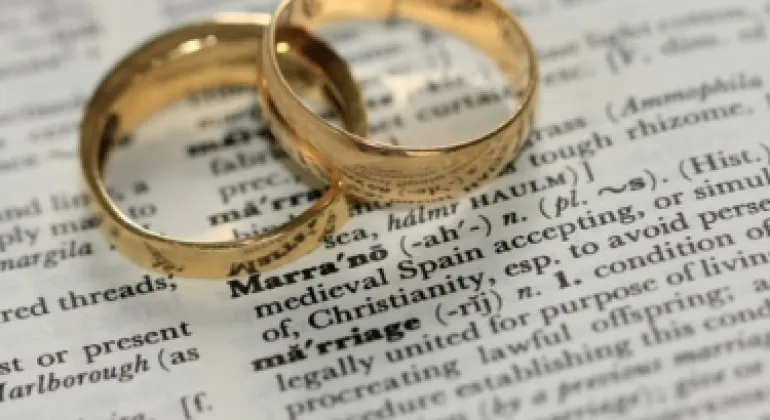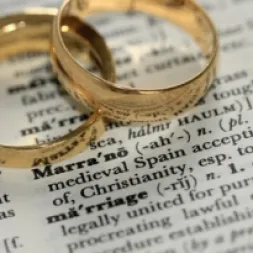SYARIAH LAW FIRM 🟊🟊🟊🟊🟊 SINGAPORE

Payment Nafkah Iddah
Payment Nafkah Iddah
Nafkah Iddah refers to maintenance paid from husband to the wife for period of Iddah ( period waiting) when wife is revocably divorced. It is meant to cover wife’s “maintenance and the provision of necessary clothing and suitable lodging for the period of her Iddah”, considering her husbands income, means and her financial status. A wife who has been irrevocably divorced, or is found to be rebellious, is not entitled to nafkah Iddah.
The husband of a divorced Muslim wife is obligated to maintain her during the Iddah period as she is not permitted to re-marry for that duration. In the interest of certainty, a woman is bound to observe a minimum period called the Iddah, between the termination of the marriage by death or divorce, and remarriage. In order words, Iddah is the length of time that wife must wait following her divorce or following the death of her husband, to make sure that she is not pregnant before she can remarry. Thus, if the marriage has not been consummated, there is no Iddah period.
The Iddah period after divorce of a woman who menstruates and has regular “ period of purity” (that is , when she is not menstruating) comprises three “period of purity”. A woman divorce in one of her “period of purity” conclude her Iddah period at the beginning of the third menstruation, while one divorced during her menstruation period conclude her iddah period only upon commencement of the fourth. Where a woman is not subject to menstruation, the duration of Iddah after divorce three months. As a matter of practice , however the syariah Court would not ask divorcing wives about their menstrual cycles, but would generally take the Iddah period to be three months and ten days.
The period of Iddah when a marriage is terminated by the death of the husband is four months and ten days. If, however, a woman is pregnant, the period of Iddah continue until delivery and terminates, in the case of a divorced women, upon delivery. If the husband dies before consummation, the period of iddah is nonetheless imposed as a mark of respect for the deceased husband.
The Syariah Courts is empowered to make an order for payment of nafkah (maintenance) for the period of Iddah under section 51(2) of Administration of Muslim Law Act 1966(“AMLA”), Which reads:
A woman who has been divorced may, by application to the court, obtain an order against her former husband for the payment from time to time of her maintenance and the provision of necessary clothing and suitable lodging for the period of her Iddah.
SITUATION IN WHICH NAFKAH IDDAH IS NOT PAYBLE
Nafkah Iddah is generally not payable when the divorce is by way of pronouncement of talak wajib by the hakam or when divorce is by khuluk (redemption), when the talak is pronounce before consummation of marriage, when talak pronounced three time or for the third time, unless the wife is pregnant, or if the husbands conduct is such that he has disregarded his responsibilities as a Muslim husband.
Reference from: Muslim Family Law in Singapore
Nafkah Iddah refers to maintenance paid from husband to the wife for period of Iddah ( period waiting) when wife is revocably divorced. It is meant to cover wife’s “maintenance and the provision of necessary clothing and suitable lodging for the period of her Iddah”, considering her husbands income, means and her financial status. A wife who has been irrevocably divorced, or is found to be rebellious, is not entitled to nafkah Iddah.
The husband of a divorced Muslim wife is obligated to maintain her during the Iddah period as she is not permitted to re-marry for that duration. In the interest of certainty, a woman is bound to observe a minimum period called the Iddah, between the termination of the marriage by death or divorce, and remarriage. In order words, Iddah is the length of time that wife must wait following her divorce or following the death of her husband, to make sure that she is not pregnant before she can remarry. Thus, if the marriage has not been consummated, there is no Iddah period.
The Iddah period after divorce of a woman who menstruates and has regular “ period of purity” (that is , when she is not menstruating) comprises three “period of purity”. A woman divorce in one of her “period of purity” conclude her Iddah period at the beginning of the third menstruation, while one divorced during her menstruation period conclude her iddah period only upon commencement of the fourth. Where a woman is not subject to menstruation, the duration of Iddah after divorce three months. As a matter of practice , however the syariah Court would not ask divorcing wives about their menstrual cycles, but would generally take the Iddah period to be three months and ten days.
The period of Iddah when a marriage is terminated by the death of the husband is four months and ten days. If, however, a woman is pregnant, the period of Iddah continue until delivery and terminates, in the case of a divorced women, upon delivery. If the husband dies before consummation, the period of iddah is nonetheless imposed as a mark of respect for the deceased husband.
The Syariah Courts is empowered to make an order for payment of nafkah (maintenance) for the period of Iddah under section 51(2) of Administration of Muslim Law Act 1966(“AMLA”), Which reads:
A woman who has been divorced may, by application to the court, obtain an order against her former husband for the payment from time to time of her maintenance and the provision of necessary clothing and suitable lodging for the period of her Iddah.
SITUATION IN WHICH NAFKAH IDDAH IS NOT PAYBLE
Nafkah Iddah is generally not payable when the divorce is by way of pronouncement of talak wajib by the hakam or when divorce is by khuluk (redemption), when the talak is pronounce before consummation of marriage, when talak pronounced three time or for the third time, unless the wife is pregnant, or if the husbands conduct is such that he has disregarded his responsibilities as a Muslim husband.
Reference from: Muslim Family Law in Singapore






